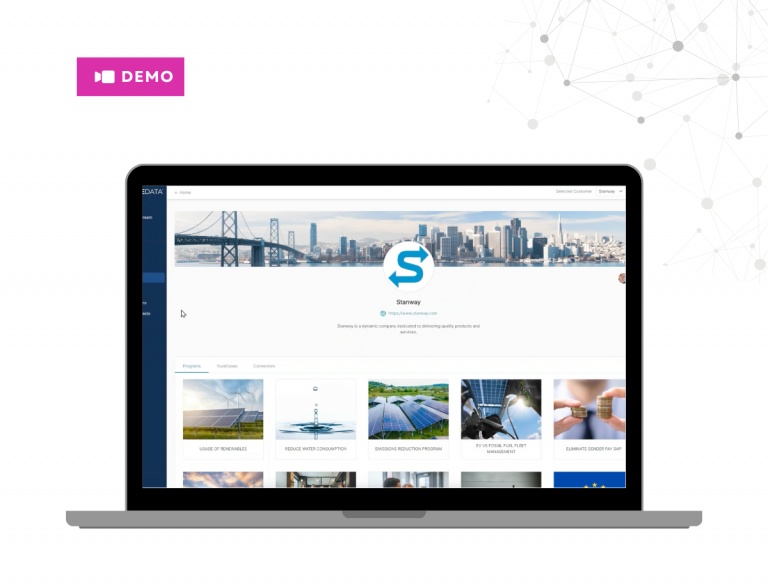In the rapidly evolving landscape of corporate responsibility, Environmental, Social, and Governance (ESG) reporting has emerged as a pivotal component. Investors, consumers, and employees are increasingly prioritizing sustainability, leading to a surge in demand for accurate and transparent ESG data. In this context, the role of auditors, particularly Certified Public Accountants (CPAs), becomes paramount in ensuring the reliability and credibility of these disclosures. Let’s delve deeper into why high-quality ESG data, backed by robust auditing, has become indispensable for modern businesses.
ESG Reporting Significance
The upsurge in ESG investments and heightened stakeholder interest amplifies the importance of transparent ESG reporting. Corporations face the challenge of meeting the diverse needs of investors, customers, and employees, necessitating reliable and transparent ESG information to build trust and credibility.
Role of the Auditors in ESG Disclosures
CPAs and auditors are instrumental in ensuring accurate ESG disclosures, considering the recent surge in both voluntary and mandatory ESG reporting. Reporting frameworks and methodologies for ESG disclosure becomes crucial, given the growing emphasis on sustainability initiatives worldwide.
Importance of Assurance
ESG assurance, akin to financial statement audits, aims to bolster the reliability of ESG information, fostering confidence among stakeholders. Attestation engagements by auditors ensure compliance with specific criteria, enhancing the credibility of disclosed ESG data.
ESG Audit Challenges Faced by Auditors:
- Diverse Master Data Standards: Auditors encounter a significant hurdle in managing the multitude of master data standards implemented by various partners. While some standards excel in certain areas, they often lack completeness or consistency in others. This variability creates complexities, making it challenging for auditors to ensure a unified and comprehensive approach to ESG data assessment.
- Complexity Behind Scope 1 Calculations: Scope 1 emissions, the direct greenhouse gas emissions from sources a company owns or controls, often involve a web of 10 to 30 calculations. Simply pulling a report with the final carbon figure doesn’t suffice. Auditors need a minimum level of detailed information per calculation to validate and assure the accuracy of the final reported carbon data.
- Navigating Multiple Systems for Carbon Data: Auditors frequently encounter the need to delve into different systems to trace how carbon data has been calculated. This necessity to navigate diverse platforms adds layers of complexity and time consumption to the auditing process.
- Manual Tracing Across Systems: Auditors are compelled to raise additional inquiries that demand manual tracing of data across multiple systems. These inquiries are essential for verifying and validating the accuracy and consistency of the reported ESG information.
The Current State of Play in ESG Assurance
Initial assurance engagements typically focus on greenhouse gas emissions (Scope 1 and Scope 2). However, companies increasingly seek assurance across a broader spectrum of ESG metrics beyond emissions. The expanding scope demands auditors to adapt and assess various facets of sustainability performance.
Companies often undergo readiness assessments to prepare for external assurance. While most begin with limited assurance, there’s a trend towards achieving “reasonable assurance,” akin to traditional financial audits.
CPAs and auditors possess the expertise in evaluating procedures and ensuring compliance with diverse standards and frameworks. Industry-developed standards for ESG assurance have equipped auditors with the necessary skills, positioning them as ideal candidates for this critical task.
Presently, organizations often rely on non-CPAs for ESG assurance, especially in the US. However, the profession is rapidly evolving to meet the escalating demand, anticipating a transition towards using CPAs as reporting practices mature.
Data Validation by Auditors
Auditors, whether internal or external, play a pivotal role in validating various datasets, including ESG information. They assure the accuracy of data gathering procedures, ensuring the reliability of ESG data. Because ESG requirements are new and data is complicated, preparing for and executing an audit can be complicated. The efficiency and efficacy of an audit is directly impacted by the maturity of the customer’s data tools and automation. A fully automated ESG data pipeline can lead to an efficient and successful audit. At YuzeData will have created a built-for-purpose ESG data platform that delivers the successful outcome companies expect and deserve.
Here are a few examples of how YuzeData enables the enterprise to get their ESG data audit ready:
- Assign data point owners and verifiers with full audit trails
- Fully accessible meta data outlining provenance and source raw data
- Visible anomaly detection and override approval flows
- Federation and sharing of data across organizational boundaries in an auditable format
- Auditor access,where approved, to ESG data through a common user interface
In this era of heightened ESG reporting significance and the integral role of auditors in ensuring accuracy, YuzeData emerges as a pivotal partner for corporations seeking to streamline their ESG data automation. YuzeData helps companies turn their ESG data into accessible, accurate, and actionable assets. The YuzeData platform is a self-service, single-source-of-truth that connects critical data sources with business context to deliver faster access to trustworthy datasets in order to improve performance and more effectively achieve compliance goals.
By leveraging YuzeData’s innovative SaaS software, companies can efficiently organize their ESG data in a fully verifiable and traceable manner. YuzeData’s platform eliminates complexities, enabling businesses to deliver reliable and actionable ESG insights, empowering them to go beyond compliance and actually improve ESG performance.






